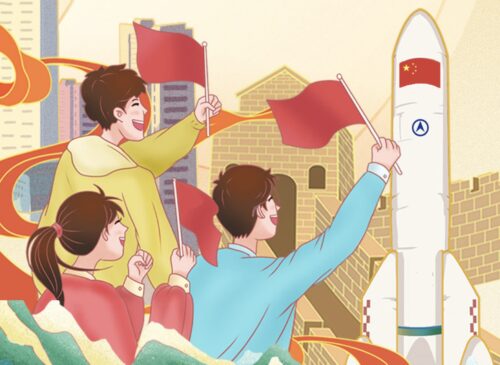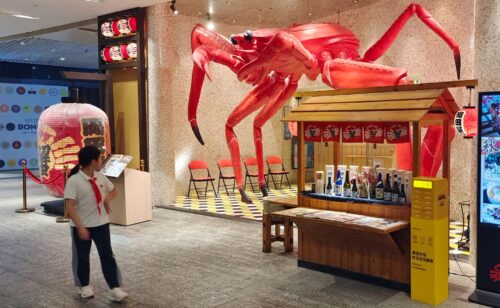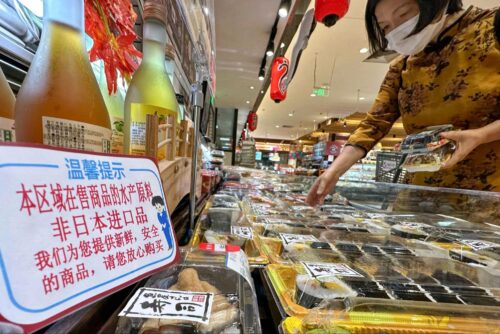China bans Japanese seafood over Fukushima wastewater concerns
Beijing has banned all seafood imports from Japan over its decision to discharge treated wastewater from the wrecked Fukushima nuclear power plant. The backlash in China has been swift.
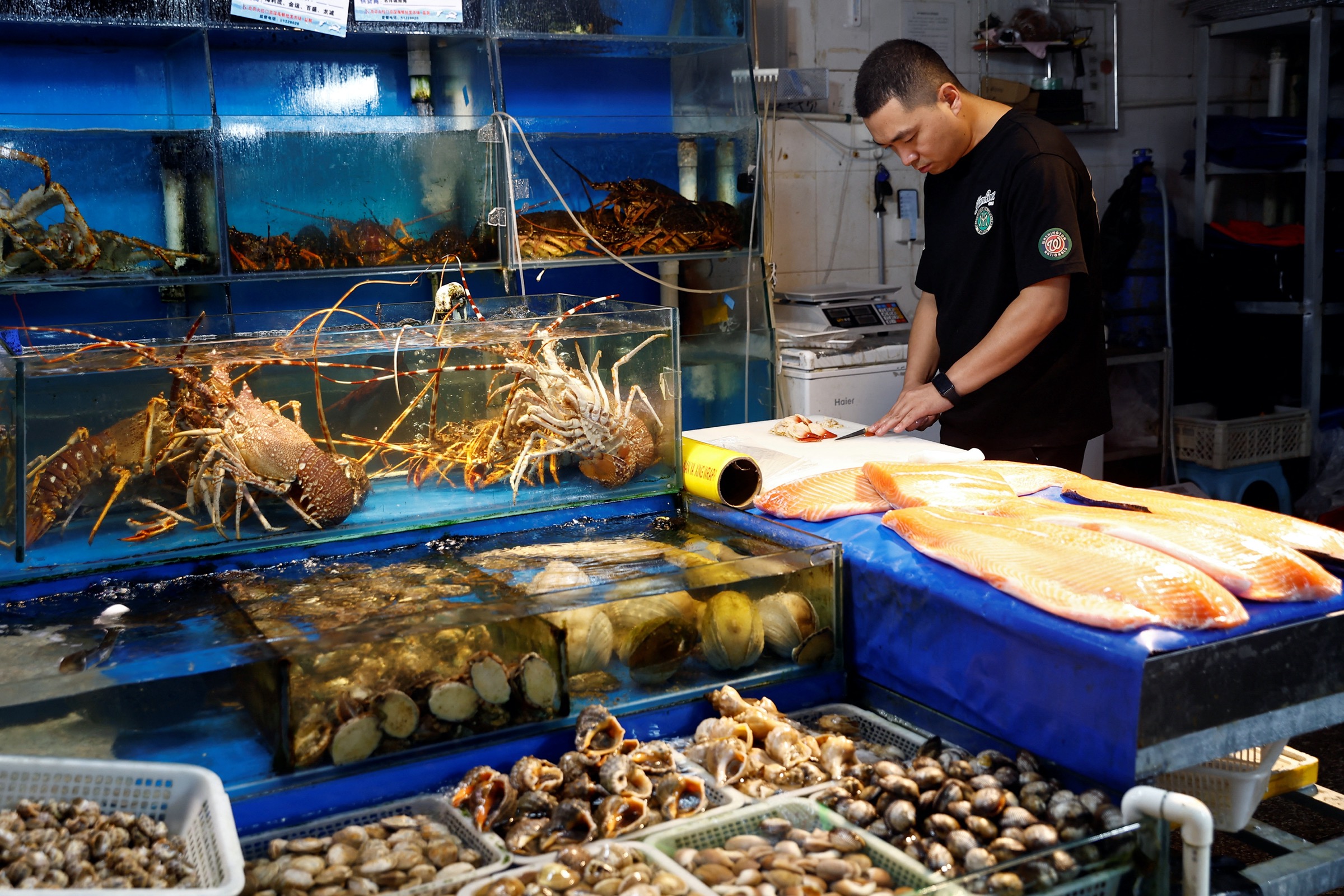
China suspended all seafood imports from Japan in response to Tokyo’s controversial release of treated wastewater from the wrecked Fukushima nuclear power plant, China’s General Administration of Customs (GAC) announced last Thursday.
The process to release the treated wastewater from the Fukushima Daiichi plant is estimated to take place over at least 30 years. Japan and Tokyo Electric Power, the company that operates the plant, has claimed that the discharge is a key step in decommissioning the site after it was destroyed by a tsunami in 2011.
Japan’s Prime Minister Fumio Kishida and the International Atomic Energy Agency (IAEA), the United Nations’s atomic regulator, have insisted that the discharge of wastewater will meet global safety standards. But a slew of other countries and many consumers both in Japan and abroad have fiercely objected to the plan over safety concerns, and have questioned the motives of Japan’s government and the IAEA. Beijing has been the most vocal critic: The Chinese Foreign Ministry has repeatedly called it an “extremely selfish and irresponsible act” and has claimed that Japan “has yet to prove the legitimacy and legality” of its decision.
“China and other stakeholders have the right and the responsibility to take legitimate, reasonable, and necessary preventative measures to protect marine environment, food safety, and people’s health,” Chinese Foreign Ministry spokesperson Wāng Wénbīn 汪文斌 added. China’s Ministry of Ecology and Environment also announced (in Chinese) that it will step up radiation monitoring in China’s sea areas and watch for any impact from the release.
Research conducted by Tsinghua University indicates that the wastewater will reach China’s coasts within 240 days.
Bans and backlash
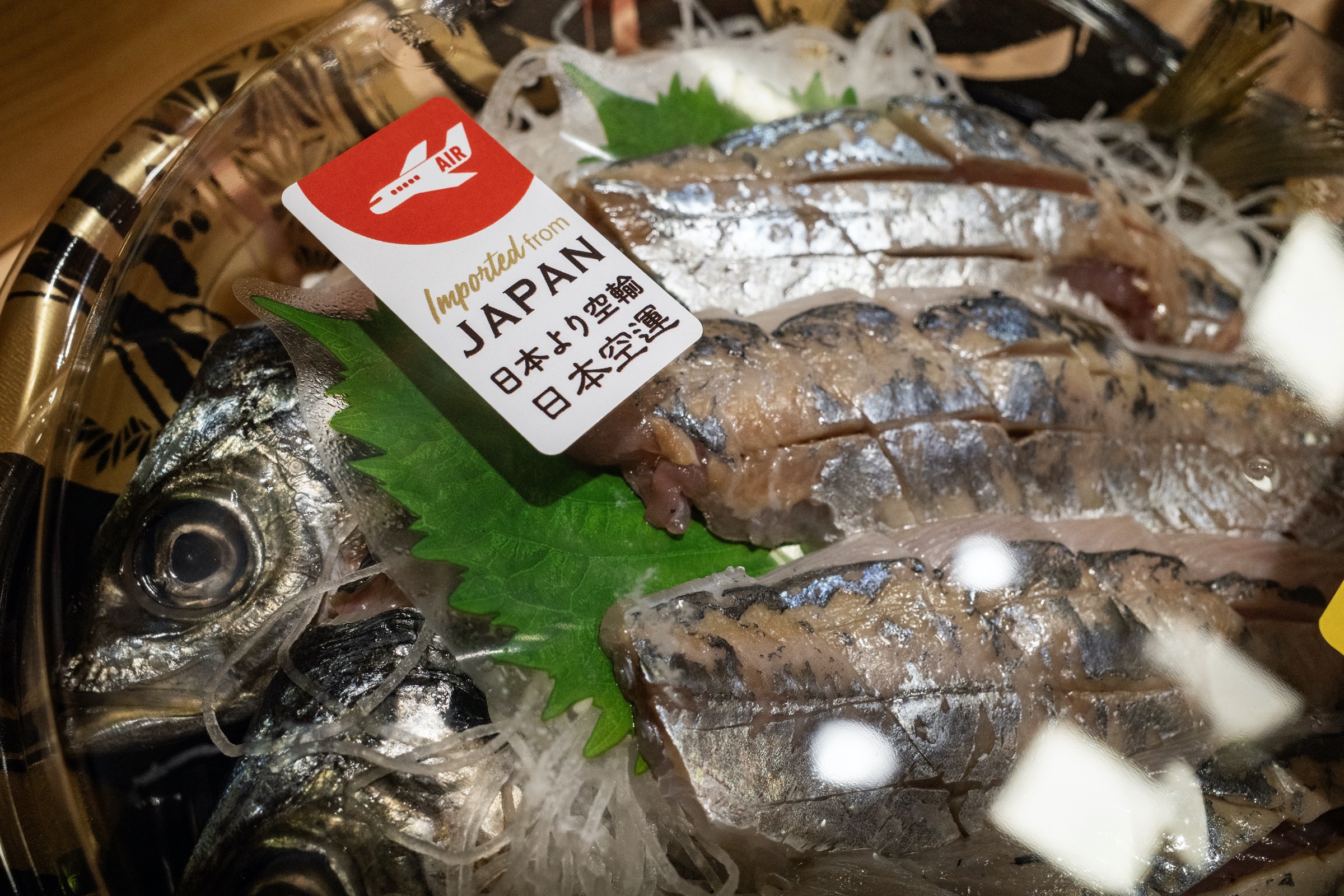
The backlash against Japan’s move to discharge the wastewater has been swift. It will likely further complicate relations between China and Japan, which have soured in recent months over Japan’s cozying relationships with South Korea and the United States.
China has already imposed bans on food imports from 10 prefectures around the Fukushima plant. On August 22, the Hong Kong government announced it will also ban seafood imports from those same prefectures. Both China and Hong Kong are the two largest export destinations for Japanese seafood exports, accounting for 22.5% and 19.5% of Japan’s total share by value.
In Japan, both Fukushima and national fisheries associations have grown increasingly anxious that the discharge will be bad for business. They fear it will make domestic and international customers reluctant to eat fish from the region over safety concerns.
China’s online mediascape, both on social platforms and state-run outlets, has exploded with anger at Japan’s actions. Several state media outlets have published scathing editorials and opinion polls. On Chinese microblogging platform Weibo, a hashtag (#日本核污染水下午排入海洋) blasting the release gained more than 21 million views over the weekend.
“The earth can live without Japan, but not without oceans,” said the top comment, with over 129,000 likes, on Chinese state broadcaster CCTV’s post under the hashtag. “Mount Fuji, hurry up and wake up,” another top comment said.
Further calls to boycott Japanese goods have flared up among Chinese social media users. They are typically part of a wider backlash that emerges whenever old grievances, territorial disputes, or other points of political friction are dredged up between the two countries.
“When going out, try to be cautious, such as not speaking Japanese loudly unnecessarily,” Japan’s embassy in China told its citizens in an alert posted on its website on August 25.
Some consumers all over Asia have begun hoarding salt and seafood amid fears of future contamination. But others, including people in China and Hong Kong, have insisted that they will continue to eat Japanese seafood — if they are able to do so.
Meanwhile, Natsuo Yamaguchi, the head of Japan’s Komeito Party, said that he will postpone his planned visit to China from August 28 to 30 at Beijing’s request. Yamaguchi had hoped to meet Chinese President Xí Jìnpíng 习近平 and hand over a personal letter from Prime Minister Fumio Kishida.
Beijing told the Komeito that “the timing is not appropriate considering the current situation of Japan-China relations,” according to a statement from the party on August 26.
David Fishman, a China-based analyst of the electrical power system, including nuclear power, who is generally sympathetic to Beijing, tweeted, “There are good reasons for things being done the way they are, the logic is laid out clearly, and the testing reports and results have been public.” However, he said, “When the dialogue crosses from reasonable curiosity to conspiracy, there’s not much for the nuclear industry or public science communicators to do or say…Some people won’t be convinced. Some people believe China burned Maui with a space laser.”


